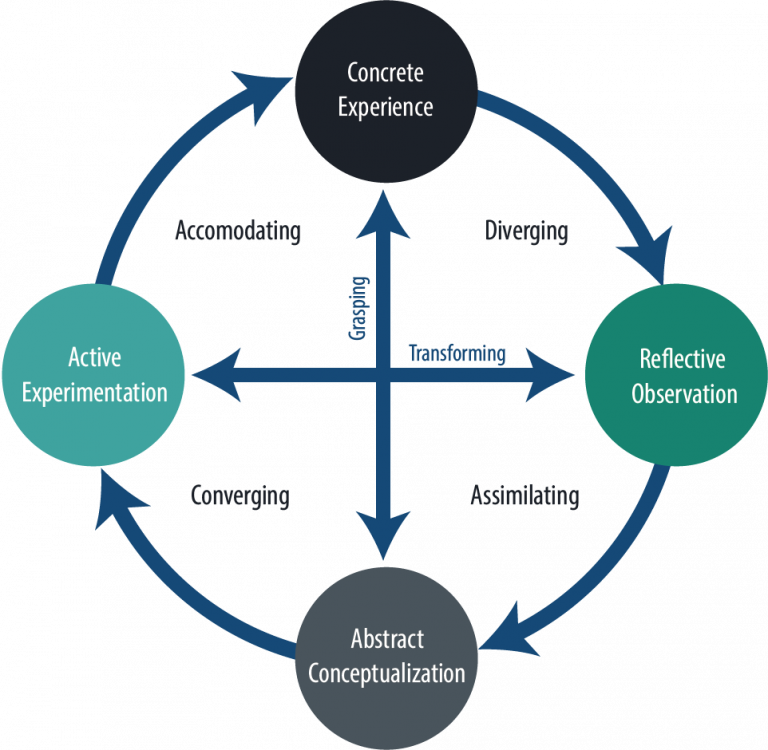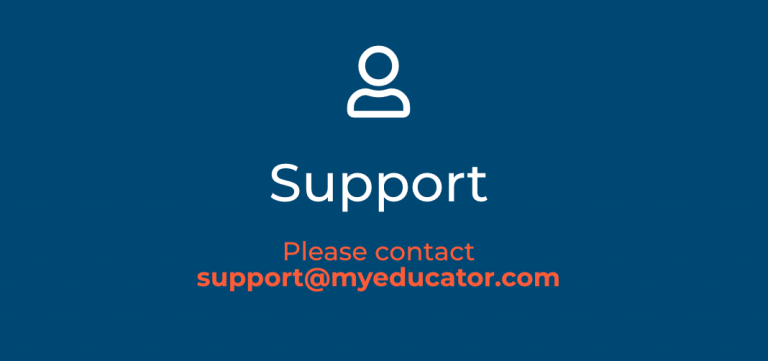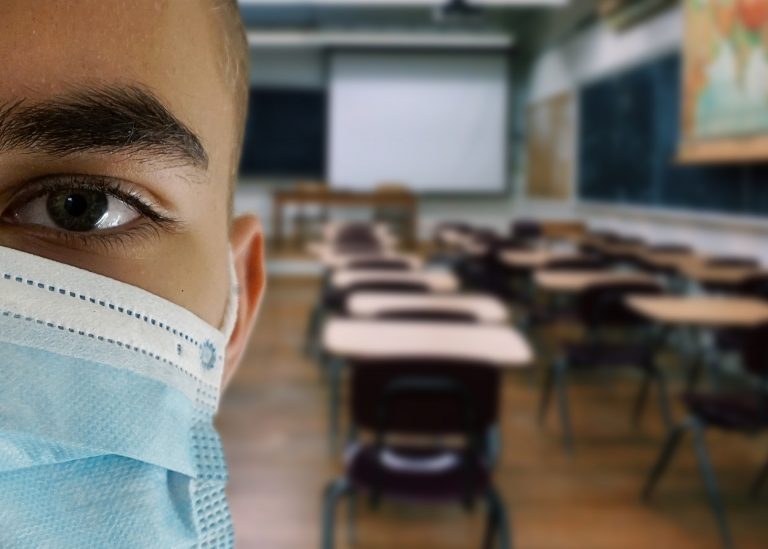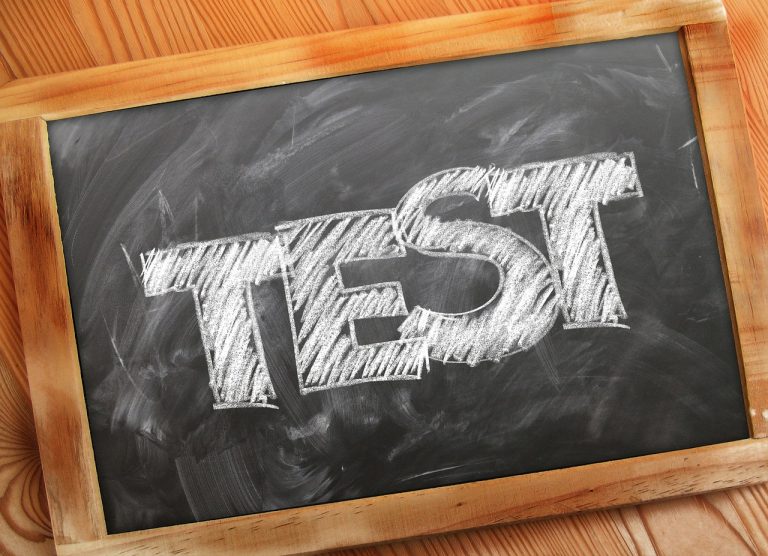The Six Propositions of Experiential Learning
Education is a two-way street. An instructor’s responsibility is to teach, but the instructor is not the only one involved. There’s a second party: the student. While the instructor teaches, it is the student’s responsibility to learn. The theory of experiential learning plays a role on both sides of the education street. In the words of David Kolb—the American educational theorist who introduced the theory—experiential learning is “the process whereby knowledge is created through the transformation of experience. Knowledge results from the combination of grasping and transforming experience” (Kolb, 1984, p. 41). Or if you want to put it in the simplest of terms: experiential learning is learning by doing.
Experiential learning is built on six propositions. Take a look at this video to learn more!
Proposition 1: Learning is best conceived as a process, not in terms of outcomes
In other words, a learning outcome is not the endpoint—it’s merely another milestone on the journey. Learning, as discussed in the proposition below, is a continuous cycle of learning and relearning as knowledge is molded and modified. Education is not just learning facts; it’s teaching the mind to think—and that never ends!
Proposition 2: All learning is relearning
Learning is a process of examining and testing old ideas while integrating new knowledge. This can involve modifying or disposing of old knowledge that new experience has shown to need updating. As Henry David Thoreau said, “When any real progress is made, we unlearn and learn anew what we thought we knew before.” The learning process is a constant one.
Proposition 3: Learning requires the resolution of conflicts
Conflict—between old and new knowledge, differences of opinion, and intellectual disagreements—is a driving force of the learning process. These conflicts are resolved through concrete experience, abstract conceptualization, active experimentation, and reflective observation.

Balancing these opposing modes of learning will be covered more in a later article!
Proposition 4: Learning is a holistic process of adaptation
Experiential learning is more than just cognition. It also involves other aspects of the human condition, such as thinking, perceiving, feeling, and behaving. Problem solving, decision making, and creativity are all a part of it, each playing its own role in helping students to understand on a higher level. Learning involves the whole of a person, not just a part.
Proposition 5: Learning results from synergetic transactions between the person and the environment
Learners do not just respond to their environment—they re-create it. In a classroom environment, the learning space is essential for success. The learning space, when done well, will allow students to rise to new heights, and the students, in turn, will help to cultivate the learning space so that it will continue to benefit the learning experience.
Proposition 6: Learning is the process of creating knowledge
This may seem all too obvious, but it’s less intuitive than it first appears. Think of it in terms of the common proverb, “If you give a man a fish, you feed him for a day. If you teach a man to fish, you feed him for a lifetime.” Some methods of teaching are simply a relaying of a particular message. A fact is learned, but there is no guarantee that knowledge is created. Experiential learning believes that personal, subjective experience, combined with fact, is an essential part of creating knowledge.
Teaching is always going to be difficult, and in some ways, the experiential learning method can make it more so! But it will also enrich your teaching—and dare we say it, your life!
These six propositions are just a toe in the water when it comes to experiential learning; more discussions on experiential learning and introduction to other learning theories will feature in future articles!
Sources
Alice Y. Kolb. “What Is Experiential Learning?” Institute for Experiential Learning, October 22, 2021. https://experientiallearninginstitute.org/resources/what-is-experiential-learning/.
Fawcett, Stanley E, Francois Charles Giraud-Carrier, and Amydee M Fawcett. “Using Deliberate Practice to Transform Learning Culture: Helping Students Put Real Skills in Their OSCM Toolbox.” Decision Sciences Journal of Innovative Education 18, no. 2 (April 2020): 172–98.
David A. Kolb. (1984). Experiential Learning: Experience as a Source of Learning and Development. Upper Saddle River, NJ: Prentice-Hall, Inc.
Passarelli, Angela and David A. Kolb. “Using Experiential Learning Theory to Promote Student Learning and Development in Programs of Education Abroad.” Student Learning Abroad. Sterling, VA: Stylus Publishing.







